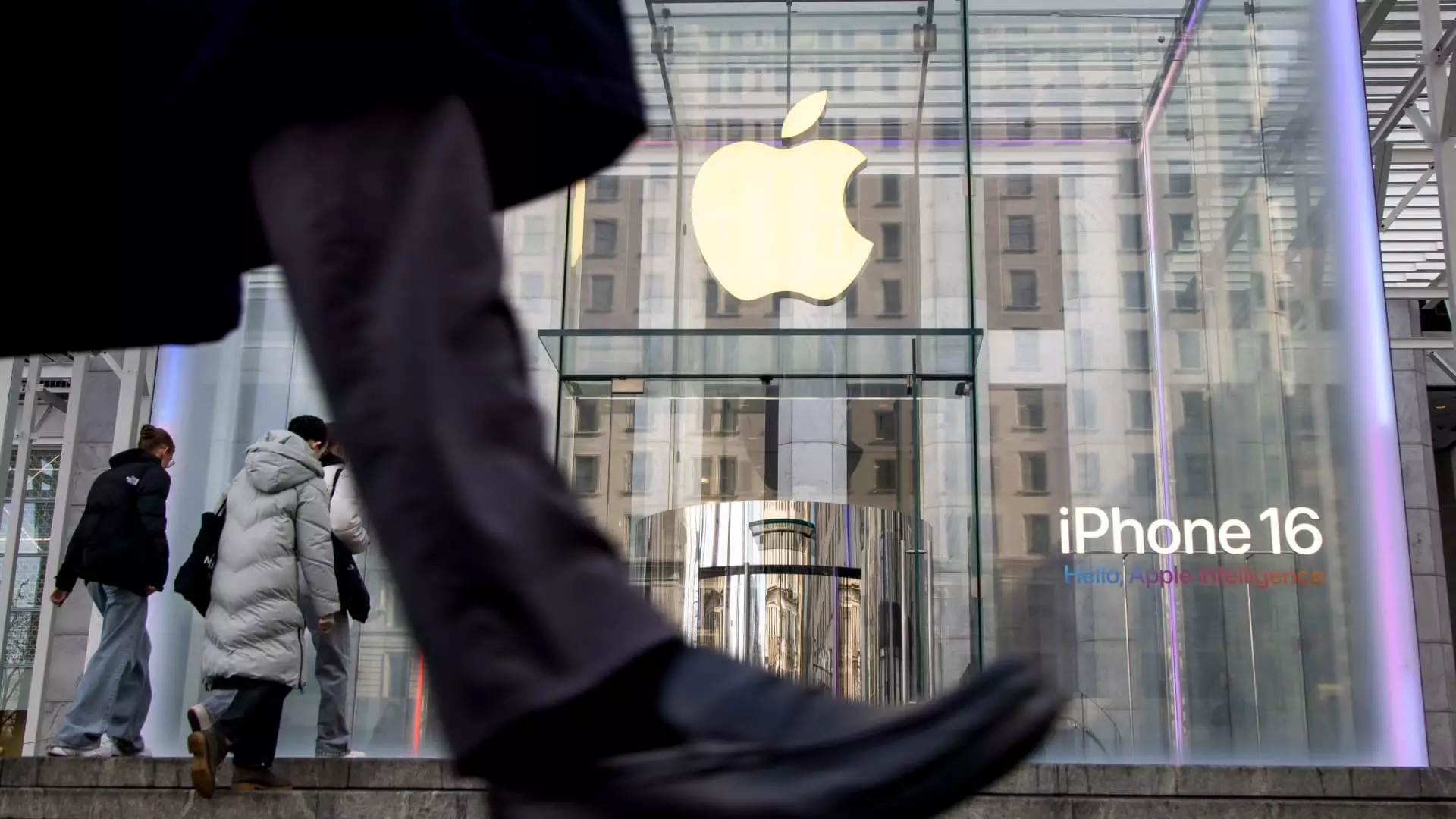With tariffs playing an increasingly central role in discussions about the economy, it’s hard to ignore the rising discontent among the American populace. A striking 85% of individuals surveyed by NerdWallet possess serious concerns about the implications of these trade policies. This anxiety is not born out of thin air; it stems from tangible worries about affordability and the dire potential for a recession. Tariffs, while framed as necessary tools for protecting local industries, often result in the very opposite: they create a precarious balance that disrupts consumer confidence and jeopardizes economic stability.
Recent findings from the University of Michigan underline the gravity of the situation. Consumer sentiment has diminished more than 30% since last December, an alarming trend that indicates a broader unease about the future. The 11% drop in April alone significantly outpaced expectations, signaling that households are not merely worried but actively recalibrating their financial strategies. In an age when economic uncertainty looms large, the prospect of increased costs due to tariffs adds insult to injury, aggravating existing fears over income stability and job security.
The Economics of Tariff-Induced Anxiety
Think about it: can a single policy truly have such a profound impact on millions? It certainly appears so, as experts gauge the annual financial hit on the average household to be around $3,800, courtesy of the Budget Lab at Yale University. Those numbers give weight to the concerns voiced by consumers. The reality is stark; rising costs mean that American families are now tasked with finding a way to navigate financial survival. This means reconsidering everything from luxuries to essentials in their budgets—the very building blocks of their quality of life.
Kimberly Palmer, a personal finance expert at NerdWallet, points out that these tariffs are reshaping spending behaviors across the nation. In the next year alone, nearly half of the surveyed individuals plan on cutting back on non-essential purchases. A significant 33% are bracing themselves to spend less on basic necessities, while 30% aim to bolster their emergency savings—an alarming shift that underlines how deeply embedded financial insecurity has become. Nonetheless, only 14% plan on reducing their debt as they wrestle with these mounting pressures.
Financial Tightrope: Navigating Choices in Uncertain Times
The burden of tariffs creates a vicious cycle, heightening the financial stress that has already been exacerbated by inflationary pressures on everyday items like groceries. People are finding themselves at a crossroads—having to choose between saving, investing, or tackling debts. Financial planner Stephen Kates highlights an essential strategy amid this chaos: the prioritization of emergency savings. In his view, individuals should strive for at least one month’s worth of essential expenses saved, and ideally, three to six months of living costs. This approach provides a buffer against unforeseen income loss that could spell disaster in such uncertain times.
But what about those already grappling with substantial debt? Kates advocates for the “debt avalanche” method, urging consumers to focus on extinguishing obligations with the highest interest rates first. This strategy not only reduces the overall financial burden but serves to restore agency in a situation where many feel powerless. Even as economic pressures mount, it is crucial for people to maintain diligence in their financial goals, especially towards securing a comfortable retirement.
The Broader Implications of Tariff Policies
Tariffs are marketed as a way to protect domestic industries, but the truth is much murkier. While politicians tout their benefits, the reality is that these policies often hit consumers where it hurts most—in their wallets. The direct consequence is diminished spending power, and what was once a comfortable lifestyle for many now becomes a constant battle against rising prices and shrinking confidence.
At the heart of this issue lies the question of prioritization—how do we protect the very consumers who are being squeezed by the repercussions of trade policies? A collective reevaluation of our economic strategies may be required, leaning towards a more balanced approach that prioritizes consumer welfare alongside the advancement of domestic industries. As citizens demand real change, it’s time to question whether the action taken is beneficial for the collective populace or merely a political maneuver hiding behind the guise of economic protectionism. The reality is sobering: Until we address tariff impacts with accountability and transparency, the looming burden on American families will only intensify.

